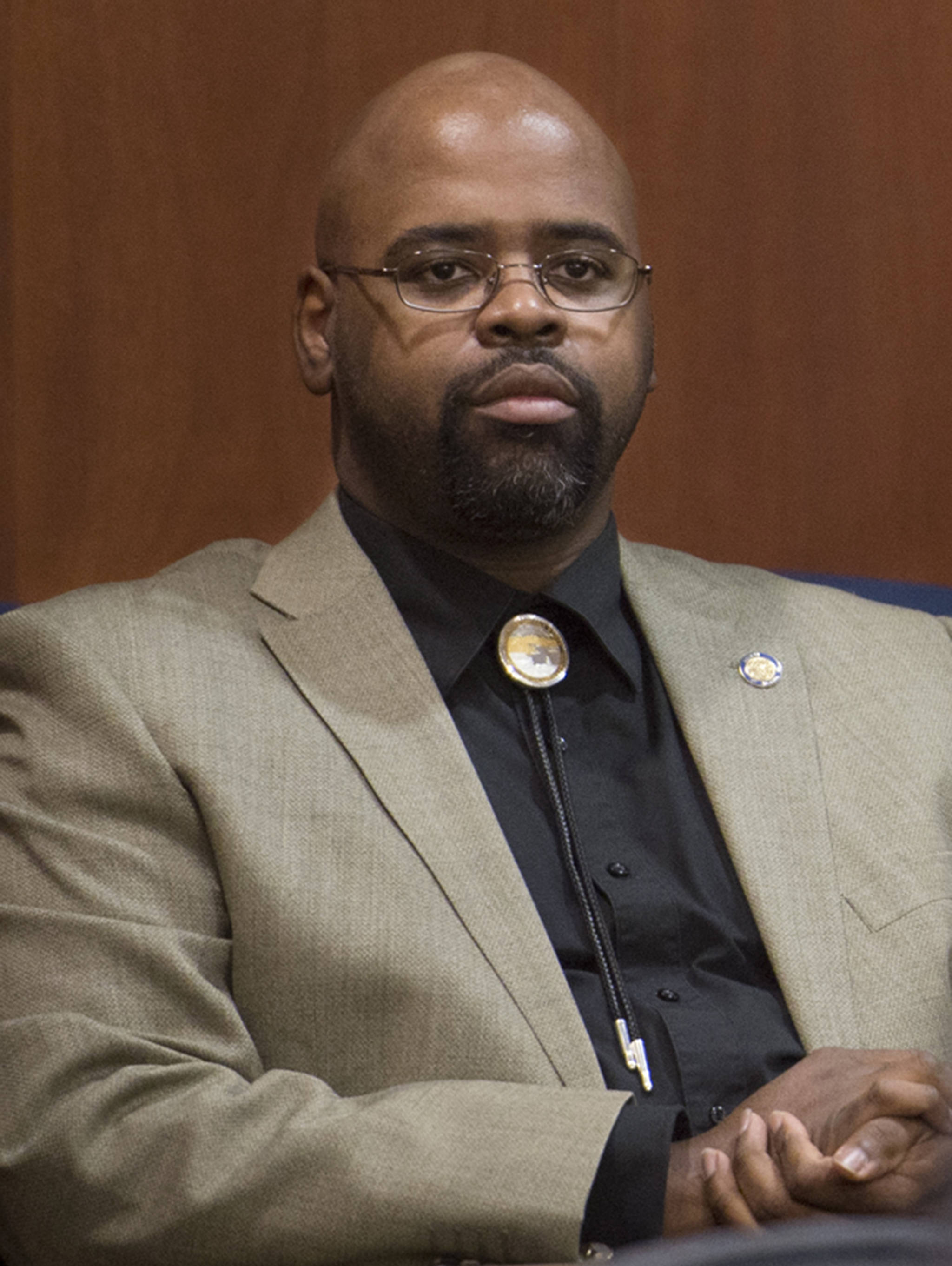A June incident involving a House staffer and state Sen. David Wilson, R-Wasilla, has prompted lawmakers to re-examine how they handle staff complaints about sexual harassment and other threats.
The staffer declined to share her account of events with the Empire, but said of the incident, “It’s inappropriate behavior. It seemed weird and inappropriate. … I don’t want to comment on this to the press. I never have.”
In June, this reporter, KTVA-TV reporter Liz Raines and as many as two other bystanders observed Sen. Wilson approach the doors leading to the meeting room reserved for the Speaker of the House. At the time, a closed-door meeting of the House Majority caucus was taking place as lawmakers tried to avert a statewide government shutdown.
Wilson pressed his ear against the door, apparently joking that he was listening in.
The staffer interrupted Wilson and asked him to stop. The staffer walked between Wilson and the door and physically blocked him from approaching the door.
Wilson brought out his cellphone and either recorded or pretended to record audio through the door. The Empire observed Wilson pass his phone between the staffer’s legs, holding the phone to the door. The staffer was wearing a skirt.
The staffer did not want to talk about the incident at the time, and she did not file a complaint.
Wilson, talking to the Empire on Thursday, said he did nothing wrong, and he disputes the Empire’s recollection of events.
“I put my ear to the door, yes, I did that, but I did not, did not, in any way, shape or form do any kind of misconduct or any kind of sexual harassment whatsoever,” Wilson told the Empire. “That is not true.”
“I feel that I have an accusation without formally being accused,” he added.
When asked for his version of events, Wilson said he had been hearing loud music and wondered where it was coming from. The staffer said he couldn’t be near the doors to the Speaker’s Chamber.
“You mean I can’t listen in?” Wilson said he joked, pressing his ear to the door.
He said the staffer walked in front of him, physically blocking him from the door and asking him to leave. When the staffer protested, he said immediately stopped, held up his hands, backed away and left the area.
He said he has asked members of the Senate to see if security cameras in the area recorded the events.
In late October, former Republican state Senate candidate Jeff Landfield wrote a blog post about the incident.
“I really didn’t think it would go anywhere,” Landfield said by phone, but after he received calls and questions from people who read his blog entry, he submitted an records request for security camera footage of the incident. The request was turned down, and Landfield has continued to write about the issue.
The Legislature’s security camera policy states: “Security camera video tapes, digital recordings, or other surveillance materials are confidential and may not be released to the public or press.”
It goes on to state that the only way security camera footage can be released is through a subpoena or other court order. Legislators themselves can only view security camera footage with the permission of the joint House-Senate Legislative Council.
On Thursday afternoon, Senate President Pete Kelly, R-Fairbanks, called reporters to his office to discuss a two-page memo addressed to the Legislature’s top lawyer and its director of human resources.
The memo begins: “It has come to our attention that the Legislature’s workplace conflict and sexual harassment policies may not adequately address the desire we have to maintain the Capitol as a safe and welcoming workplace for all.”
Kelly said legislative employees need a way to report problems safely.
As Kelly unveiled the Senate leadership’s request, the Empire asked whether a line can be drawn between the memo and the June incident.
“I don’t think you should draw a line between that and this,” Kelly said. “I don’t think it’s necessarily directly related. I think a lot of things that would be included have drawn everyone’s attention to this, including what’s going on in the national scene. It’s got to be fixed.”
Rep. Gabrielle LeDoux, R-Anchorage, said members of the House majority had been considering ways to bolster the Legislature’s internal protections, and that the Senate announced its request soon after House staffers began discussions with staffers for Senate Rules Chairman Kevin Meyer, R-Anchorage.
“They’ve sent a letter, but they haven’t bothered to do anything when one of their own members apparently acted inappropriately. It’s one thing to send letters; it’s another thing to do something,” LeDoux said.
Asked to clarify what incident she was referring to, LeDoux continued: “In deference to the victim — I’m not going to mention the victim’s name — but there have been rumors in this building about an incident which occurred … in June involving David Wilson, Sen. Wilson.”
LeDoux reminded the Empire that Wilson was accused of slapping a reporter from the Alaska Dispatch News earlier in the year. A complaint was filed with the Juneau Police Department by the reporter, and the case was referred to the Office of Special Prosecutions.
Regarding the June incident, the staffer involved said she simply wants the whole thing to go away. The staffer works for a Democrat; the senator is a Republican. She said she has asked her boss to not politicize the incident, and she fears that by coming out publicly, it would become a political issue.
“We could have blown these people up over this, and we didn’t because I didn’t want them to,” the staffer said. “I also have to work with these people.”
“I was just doing my job. I’ve never been put in a situation like this, and I never want to again,” the staffer said.
• Contact reporter James Brooks at james.k.brooks@juneauempire.com or call 523-2258.

